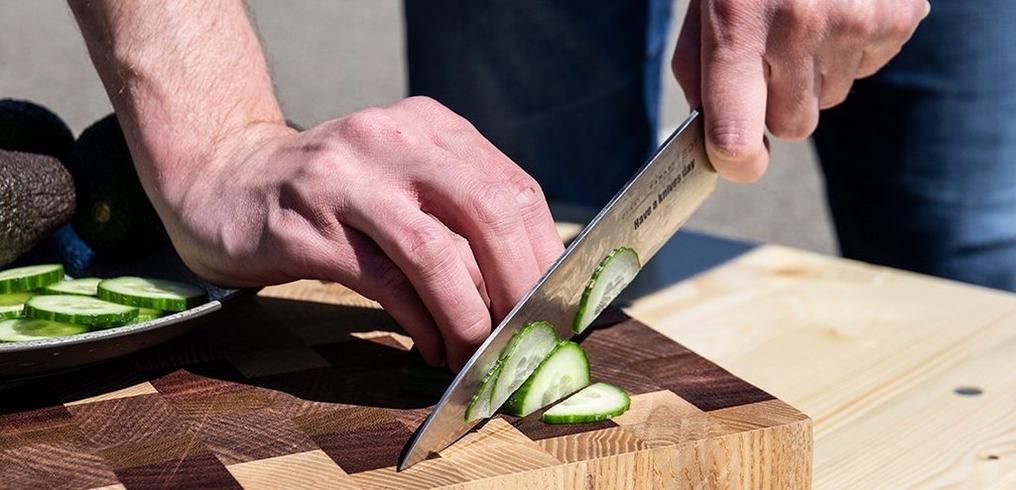The art of selecting the right knife is a crucial skill for kitchen professionals. As a culinary expert, your tools are an extension of your craft, and choosing the right knife can significantly impact your cooking precision and efficiency. If you're wondering how to buy German knives online, you're in the right place. This guide will walk you through the essential considerations to make an informed purchase, ensuring you get the best value for your investment.

Why Choose German Knives?
German knives are renowned for their durability, precision, and versatility. They are a staple in many professional kitchens due to their robust construction and ability to maintain a sharp edge. Brands like Wsthof and Zwilling have set the standard for quality and craftsmanship, offering knives that cater to both professional chefs and cooking enthusiasts. These knives are typically made from high-carbon stainless steel, ensuring longevity and resistance to rust and corrosion.
For more insights into the history and legacy of German knife making, check out this article on Solingen, Germany, known as the knife capital of the world.
Understanding the Types of German Knives
The Chef's Knife
The chef's knife is the most versatile tool in a chef's arsenal. It's suitable for various tasks, from chopping vegetables to slicing meat. Its balanced weight and precision make it ideal for both professional and home kitchens.
The Santoku Knife
The Santoku knife, while originally Japanese, has been adapted by German manufacturers to offer a unique blend of precision and versatility. It's perfect for slicing, dicing, and mincing.
The Bread Knife
A good bread knife is essential for slicing through crusty loaves without crushing them. German bread knives are known for their serrated edges that provide clean cuts every time.
For a deeper dive into the differences between German and Japanese knife steel, visit this comparison article.
Factors to Consider When Buying German Knives Online
Material and Craftsmanship
The material of the knife is paramount. Look for knives made from high-carbon stainless steel, which offers a blend of sharpness and durability. German knives are often forged, meaning they're crafted from a single piece of steel, which enhances their strength.
Brand Reputation
Consider the reputation of the brand. Established brands like Wsthof, Zwilling, and Henckels have a long history of producing high-quality knives. Their products are often backed by extensive research and development, ensuring you get a reliable tool.
Customer Reviews
Reading customer reviews can provide valuable insights into the performance and durability of the knife. Look for feedback on the knife's sharpness, balance, and overall quality.
Price vs. Value
While price is a significant factor, it's essential to consider the value you're getting. A slightly more expensive knife that offers better durability and performance can be a more economical choice in the long run.
Where to Buy German Knives Online
Several online platforms offer a wide range of German knives. Websites like Amazon, Williams Sonoma, and Sur La Table have extensive collections from reputable brands. Ensure that you purchase from a trusted retailer to avoid counterfeit products.
Additionally, consider exploring specialized knife shops that offer expert advice and a curated selection of knives. For example, this blog provides insights into the history of knife making and might help you choose the best knife for your needs.

FAQs About Buying German Knives Online
1. Are German knives suitable for left-handed users?
Yes, many German knife brands offer models designed for left-handed users. It's essential to check the product specifications or consult customer reviews to ensure a comfortable fit.
2. How often should I sharpen my German knife?
The frequency of sharpening depends on usage. For professional chefs, sharpening every few months is advisable. Regular honing with a steel rod can help maintain the edge between sharpenings.
3. Is there a significant difference between forged and stamped knives?
Forged knives are typically more durable and well-balanced, as they are made from a single piece of steel. Stamped knives are cut from a large sheet of steel and may not offer the same level of balance and durability.


























